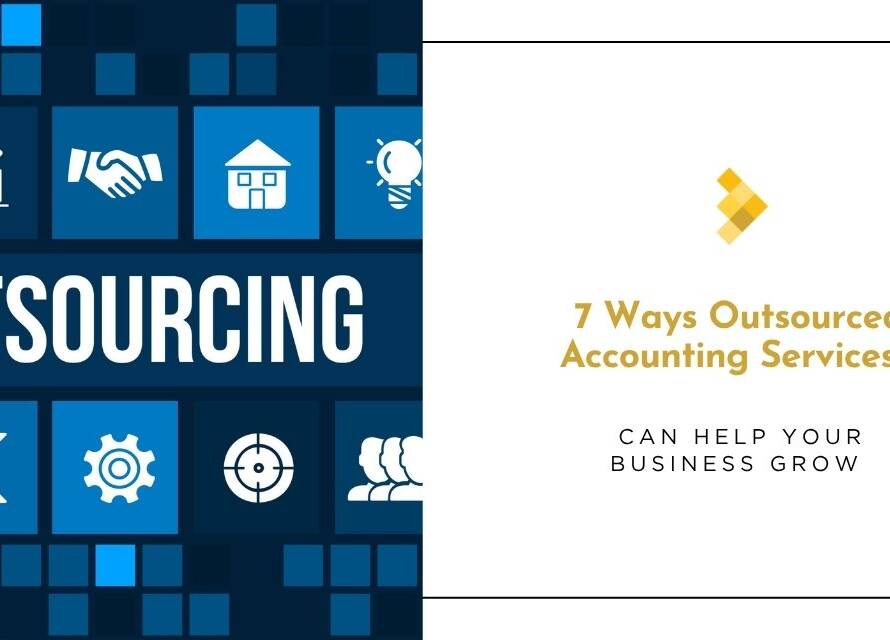Every business eventually reaches a point where financial decisions shape its future. Questions like: Is my cash flow healthy enough to scale? Should I raise funding now or wait? How can I reduce tax liabilities without stalling growth? demand more than basic accounting.
Traditionally, these answers came from a full-time CFO. But for small and mid-sized businesses, that role can be costly and unnecessary. This is where Virtual CFO services offer a smarter, flexible, and cost-effective alternative.
In this blog, we’ll explore what Virtual CFOs are, the services they provide, the benefits they bring, and why they may be the right choice for your business.
What is a Virtual CFO?
A Virtual CFO is a finance expert who delivers the same essential services as an in-house CFO but operates remotely, on a part-time or contractual basis. Using modern communication tools, data-sharing platforms, and financial technology, they manage responsibilities effectively without being physically present in the organization.
Think of it as having an on-demand CFO: someone who brings experience, analytical skills, and strategic direction, without the commitment of a full-time salary. For businesses that do not yet require or cannot afford a dedicated CFO, this model offers the perfect balance of expertise and flexibility. That’s why many growing firms turn to virtual CFO services as their preferred solution.
Core Services Provided by Virtual CFOs
Virtual CFO services go beyond reviewing financial statements. It brings a full suite of services that combine financial leadership, strategic insight, and hands-on guidance. Some of the core areas it covers include:
1. Financial Planning and Strategy
Developing budgets, forecasts, and financial roadmaps that align with the company’s growth goals. They help leadership understand where the business is headed and how to prepare for future opportunities or challenges.
2. Cash Flow Management
Keeping track of inflows and outflows to ensure the business always has enough liquidity to operate smoothly. Strong cash flow management also prevents bottlenecks that can hold back growth. This includes advising on short-term funding needs or credit line management.
3. Accounting Oversight and Reporting
Reviewing bookkeeping practices, strengthening internal controls, and introducing better reporting systems. This ensures accuracy, transparency, and efficiency in day-to-day operations. This also includes setting up structured monthly, quarterly, and annual closing procedures.
4. Performance Tracking
Designing dashboards and key performance indicators (KPIs) to monitor financial health. This gives business owners clear insights into profitability, margins, and growth trends.
5. Tax Planning and Compliance
Minimizing tax liabilities while staying compliant with local and international regulations. The Virtual CFO also prepares audits, monitors deadlines, and oversees estimated tax payments and filings.
6. Fundraising and Investor Relations
Preparing detailed financial models and pitch decks for investors, guiding capital-raising strategies, and managing relationships with stakeholders. This is particularly valuable for startups and fast-scaling businesses.
7. Risk Management and Advisory
Identifying financial, operational, or compliance risks and creating strategies to reduce exposure.
8. Leadership & Advisory Support
A Virtual CFO acts as a trusted financial advisor, providing strategic guidance and clear insights for key decisions. They join board and investor meetings to turn financial data into actionable strategies and mentor internal teams to build financial awareness and smarter decision-making across the organization.
Rather than functioning solely as an outsourced advisor, a Virtual CFO serves as a strategic guide, helping businesses see the bigger financial picture and chart a clearer path forward. To see how this support might work in practice, you can book a free consultation and explore the possibilities with virtual CFO services.
Benefits of Hiring Virtual CFOs
1. Cost Savings
Bringing on a full-time CFO often means committing to a six-figure salary plus benefits. For many growing businesses, that level of investment isn’t realistic. A Virtual CFO delivers the same high-level expertise at a fraction of the cost, with fees based only on the scope and hours your business actually needs.
2. Flexibility
Your business doesn’t need the same level of financial support every month. At times you may require close attention to budgeting and cash flow, while at others you might need guidance for an expansion or investor meeting. A Virtual CFO adjusts their role to match these shifts, giving you the right level of support exactly when it’s needed. This adaptability makes virtual CFO services especially valuable.
3. Expertise on Demand
Virtual CFOs often come with decades of multi-industry experience, which means you gain a broad perspective that goes beyond the walls of your own business. This depth of knowledge can be invaluable when facing complex situations such as restructuring, scaling internationally, or preparing tax audits. You get seasoned expertise on call without the full-time commitment.
4. Better Decision-Making
A Virtual CFO provides accurate reporting, trend analysis, and forward-looking forecasts, allowing leaders to act proactively instead of reacting to crises. With a stronger grasp of your financial landscape, you can make decisions rooted in strategy rather than guesswork. This is one of the standout benefits of virtual CFO services.
5. Stronger Investor Confidence
For startups and small businesses, winning investor trust starts with credibility. A Virtual CFO prepares detailed financial models, polished investor reports, and compliance checks that inspire confidence among lenders and investors. With a Virtual CFO’s backing, businesses are far more likely to gain investor trust and secure the funding they need to grow.
Emerging Trends in Virtual CFO Services
The role of Virtual CFOs is evolving as businesses demand more speed, precision, and adaptability. Instead of focusing only on traditional reporting, Virtual CFOs are embracing new tools and methods to deliver sharper insights. Some key trends include:
• Smarter automation and AI tools: Tasks like bookkeeping, expense tracking, and cash flow monitoring are increasingly automated, allowing Virtual CFOs to focus on strategy instead of routine processes.
• Cloud-first collaboration: Platforms like NetSuite, Jirav, and Sage Intacct enable Virtual CFOs to access real-time data, run advanced dashboards, and collaborate seamlessly with clients from anywhere. For small businesses, comparing tools like QuickBooks Online vs Xero often becomes a key decision, and a Virtual CFO can guide you toward the right choice.
• Reports to strategy: Virtual CFOs are utilizing analytics and forecasting to model scenarios, predict outcomes, and guide proactive business decisions.
• Industry-focused expertise: Many Virtual CFOs now specialize in sectors such as SaaS, e-commerce, real estate, or healthcare, offering tailored strategies that match industry-specific challenges.
• Flexible, scalable services: Virtual CFOs now offer modular service packages that can scale up during growth phases or scale down during quieter periods.
These shifts highlight how virtual CFO services are becoming growth partners rather than just financial overseers.
Who Should Consider Virtual CFO Services?
Not every business needs a full-time CFO, but many can benefit from the expertise of a Virtual CFO. These services are especially valuable for:
• Startups gearing up for investor funding and needing credible financial models.
• Small businesses that are scaling quickly but not ready to commit to a full-time CFO salary.
• High-growth companies dealing with complex reporting, compliance, and forecasting.
• Businesses struggling with cash flow and looking for tighter financial control.
• Entrepreneurs who want clear financial insights without building a large in-house finance team.
• Businesses operating remotely or across borders that need expert financial oversight, multi-currency accounting, and compliance support across different jurisdictions.
If your business has progressed past basic bookkeeping and accounting, it’s the right time to bring in virtual CFO services to guide your next stage of growth.
Virtual CFO or In-House CFO: Here’s a Simple Breakdown
| Aspect | Virtual CFO | Full-time CFO |
| Cost | Flexible, pay-as-needed pricing | High fixed salary + benefits |
| Engagement | Part-time, project-based, or ongoing | Fulltime, in-house commitment |
| Expertise | Broad, multi-industry experience | Deep, often industry-specific focus |
| Scalability | Easily adjust hours and services | Fixed availability, less adaptable |
| Best For | Startups, and small to mid-sized firms | Large enterprises |
This simple breakdown shows why many businesses are shifting toward virtual CFO services or even considering a fractional CFO arrangement.
How to Choose the Right Virtual CFO
• Verify industry experience (tech, retail, real estate, etc.)
• Ask about tools and platforms they use (e.g., NetSuite, Jirav, Sage Intacct)
• Check for strong communication and reporting style
• Ensure their services can scale as your business grows
A Virtual CFO is meant to be a partner who understands your vision and helps turn it into measurable growth. For businesses exploring these options, partnering with virtual CFO services can be the first step toward stronger financial systems.
Conclusion
Virtual CFO services give businesses access to high-level financial expertise without the cost of a full-time hire. They bring clarity to cash flow, strategy, and growth, helping companies make smarter decisions and build investor confidence.
If you’re ready to align your numbers with your vision, now is the time to explore what virtual CFO services can bring to your business. Book your free consultation today and take the first step toward smarter financial leadership.
FAQs
1. What does a Virtual CFO do?
A Virtual CFO manages a company’s finances remotely through virtual CFO services. They manage budgeting, forecasting, cash flow, financial reporting, and strategic planning to drive efficiency and support sustainable business growth.
2. What is the difference between a Virtual CFO and a Fractional CFO?
A Virtual CFO works remotely and continuously supports the business, while a Fractional CFO usually works part-time or on-site for specific financial tasks or projects.
3. When should a business hire a Virtual CFO?
A business should consider virtual CFO services when it needs expert financial direction but doesn’t require or can’t afford a full-time CFO. This is especially useful during periods of growth, expansion, or major transitions where a Virtual CFO brings clarity and control.
4. How much does a Virtual CFO cost?
The cost depends on the scope of work, company size, and complexity of services required, but it’s generally much lower than hiring a full-time CFO.
5. Can Virtual CFOs work with companies from any industry?
Yes. Virtual CFOs work across industries, tailoring their financial strategies to suit each business’s goals, operations, and challenges.
6. Are Virtual CFO services only for startups?
No. Virtual CFO services benefit startups, small, and mid-sized businesses alike, offering financial expertise and strategic insights at every growth stage.






8 Comments
Puneet Sehgal
Thanks, MAS, for this information
Team Maspartner
Thank you for your feedback.
Pramod Gupta
Clear and concise information.
Team Maspartner
Appreciate it.
Urvashi
Very informative
Team Maspartner
Glad it helped.
Meghna Gusain
Such a spot on article
Team Maspartner
Appreciate your feedback.